Thai king death: What will King Bhumibol Adulyadej's last rites be like?
- Published
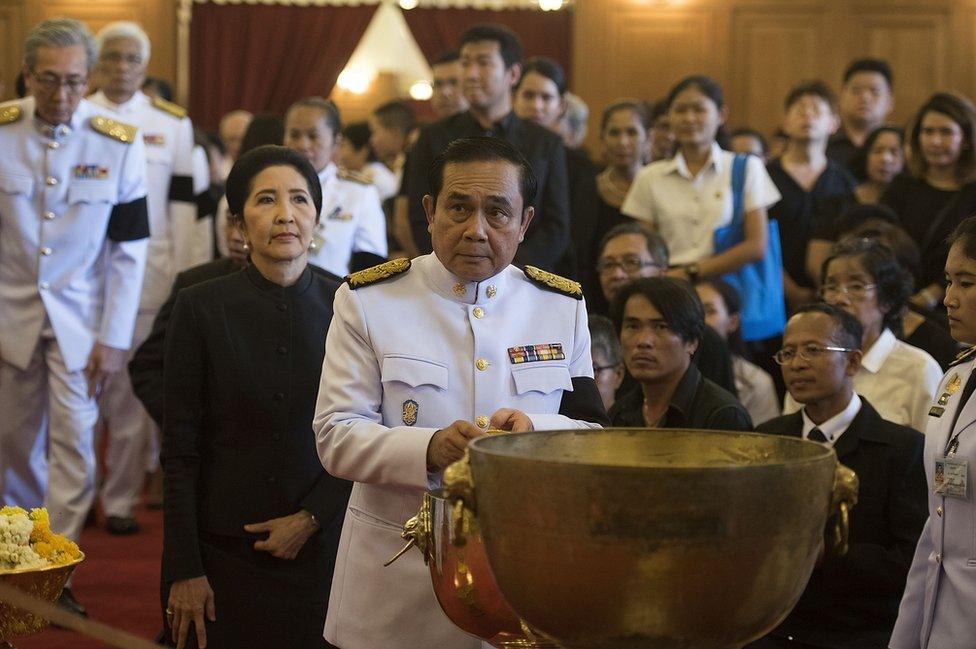
Thai Prime Minister General Prayuth Chan-o-cha attends the royal bathing ceremony - a funeral ritual - at The Grand Palace
The people of Thailand are mourning the loss of their much-loved king Bhumibol Adulyadej, the world's longest-reigning monarch, who died on Thursday aged 88.
On Friday morning, the streets of Bangkok were lined with thousands of grieving Thais - many of whom had camped out overnight.
King Bhumibol's body was moved from Siriraj Hospital to the Temple of the Emerald Buddha in the Grand Palace, the official residence of the Kings of Siam, where his funeral rites will take place.
Palace officials said the body would be placed in a coffin with a symbolic royal urn near it.
Soldiers in ceremonial dress have been gathering outside the palace, where the grass appears to have been freshly laid overnight.
The procession was expected to be led by a senior monk, Somdej Phrawannarat, who also led the prayers during the 2008 funeral of the king's elder sister, Princess Galyani Vadhana.
The Crown Prince Maha Vajiralongkorn, who has been named as successor, will also be at the procession.
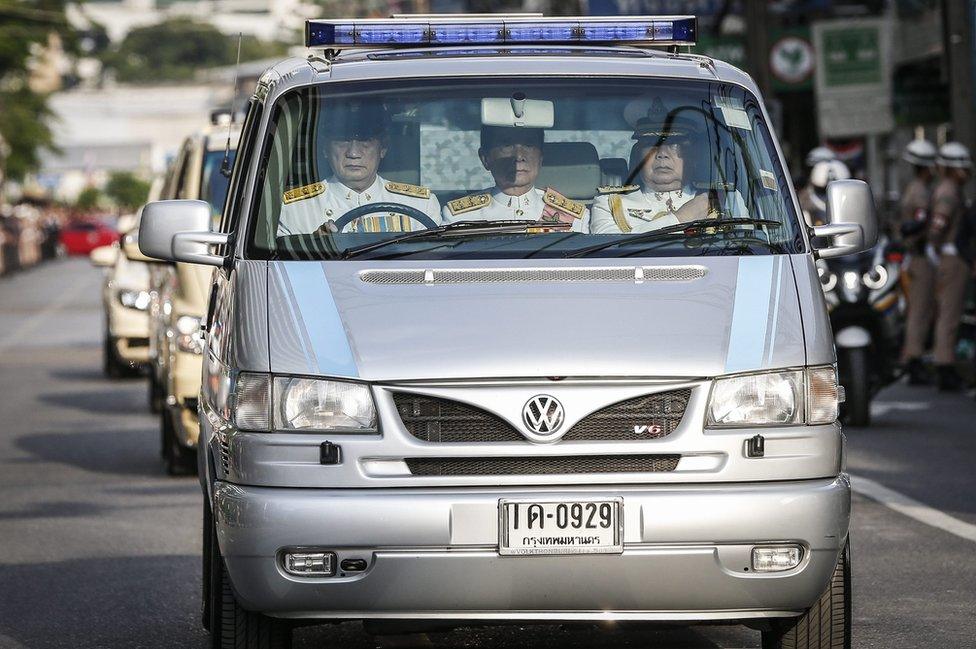
King Bhumibol died on Thursday at the age of 88, after a period of illness
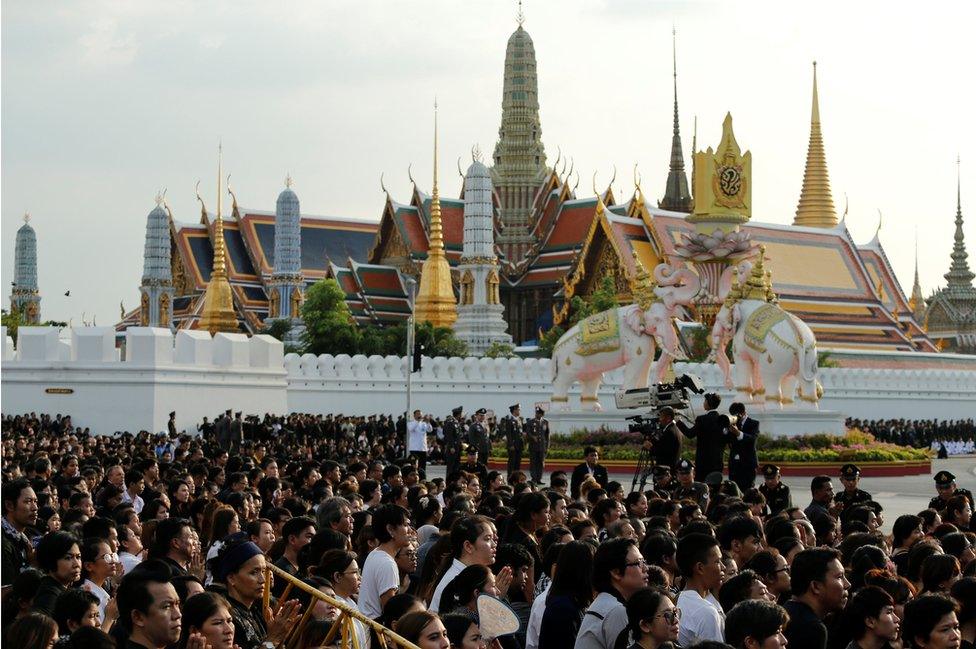
Thai people gather to attend the royal bathing ceremony at the Grand Palace - a public funeral tradition
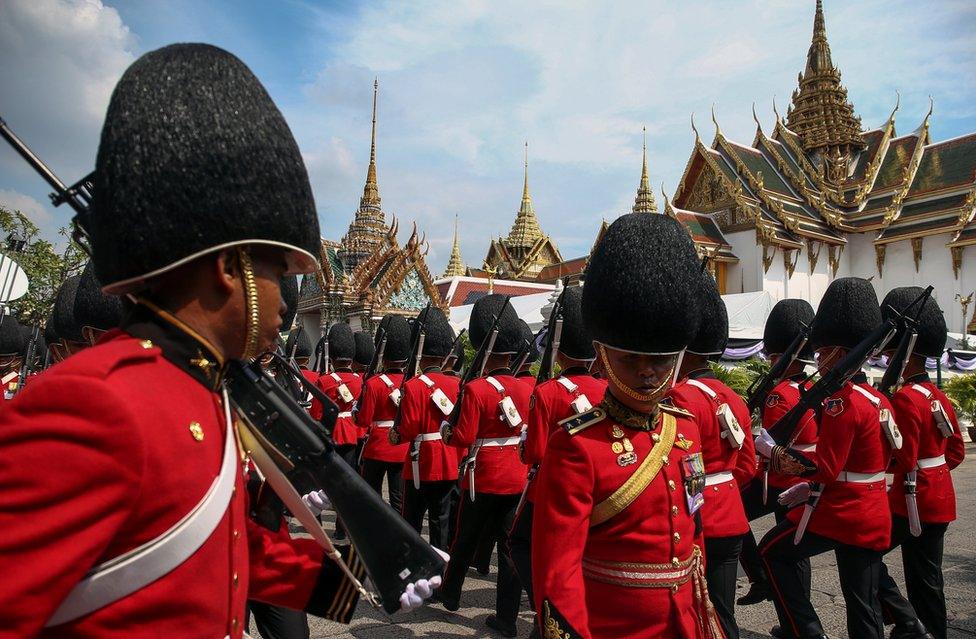
Thai Royal guards march as mourners line up to enter the palace
The royal family travelled to the Grand Palace by motorcade.
On Friday evening, Prince Maha Vajiralongkorn will conduct the bathing ceremony for his father's body - a traditional Thai Buddhist funeral rite.
Buddhist monks will conduct chants over the king's remains for at least 100 days.
Before a Buddhist funeral, family and friends repeatedly pour scented water over the hands of the deceased using a special flask. The water is meant to ritually purify the body, bringing blessings.
In the grounds of the Grand Palace, thousands of ordinary Thais are queuing for the chance to kneel before a portrait of the king and pour water on it, to replicate the symbolic bathing of his body.
Thais mourn death of King Bhumibol
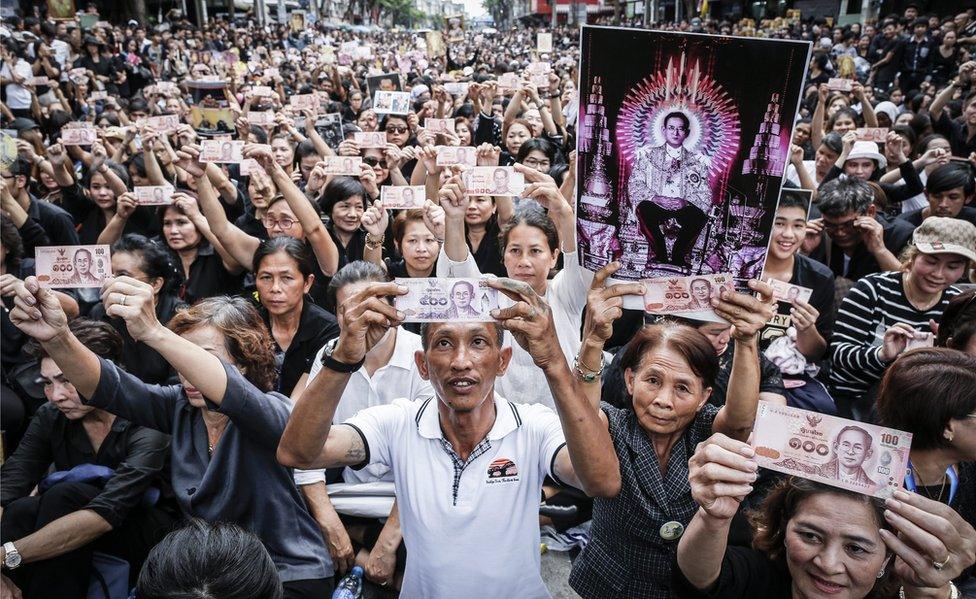
A huge crowd hold up Thai Baht banknotes with pictures of King Bhumibol Adulyadej
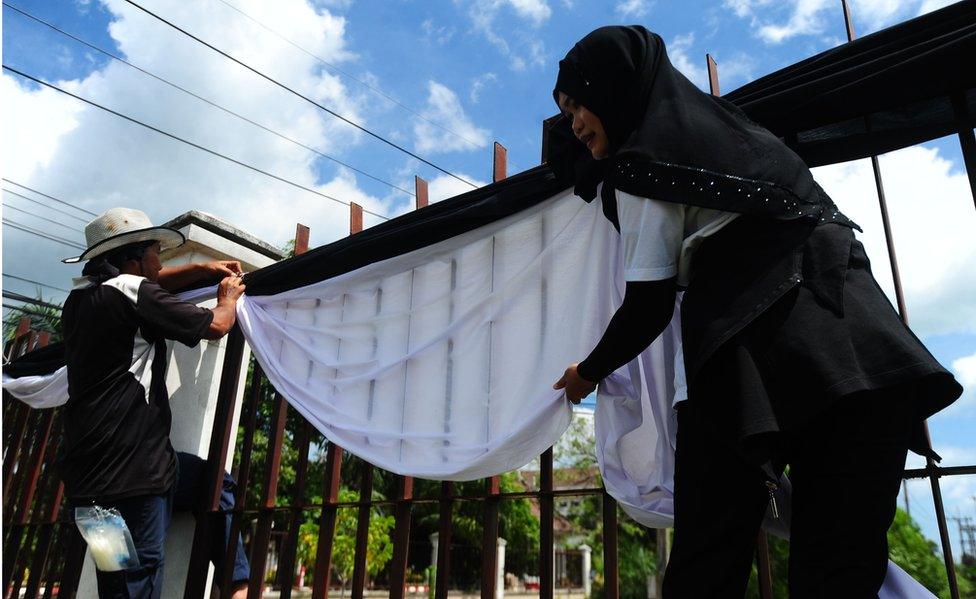
Thai Muslim workers use symbolic black and white fabric to decorate a fence
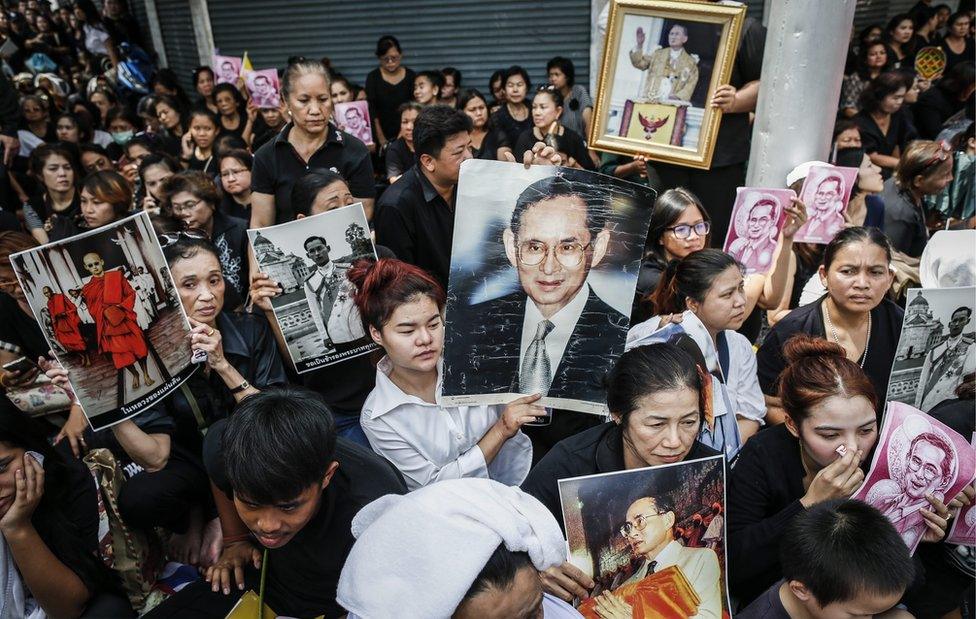
Black-clad mourners honour the departed king on the day his funeral rites begin
As yet no date has been set for the king's cremation, but in the days to come he will be ceremoniously embalmed and tied in the foetal position.
Royal funerals usually last seven days in Thailand, and are held months or even years after the death so the state can prepare a lavish farewell. King Bhumibol's is expected to be highly ceremonial and full of pageantry.
When Princess Galyani Vadhana died in 2008, her funeral ceremony cost an estimated $9m (£6.1m). It featured three processions of soldiers, conch shell-blowers, drummers, and musicians, and her remains were carried in a 14-tonne golden carriage.
King Bhumibol: A monarch who remained an enigma
The Thai word for the death of a monarch is "sawannakhot", which means "return to heaven". The deceased royal is believed to return to the Dawadungsa level of heaven, above Mount Meru, the centre of the universe, where they wait to be reincarnated.
Friday has been declared a public holiday in Thailand. Many Thai newspapers sold out early, reflecting the historic day. Most had printed in black and white, while many online news sites have done the same. Even Google Thailand has muted its usual colours for the occasion.
Flags are set to fly at half-mast for the next 30 days, and concerts, cinema screenings, and sports events have been cancelled or postponed. People have been asked to wear black and avoid "joyful events" for the next month. A government hotline has been established to offer the public grief counselling.
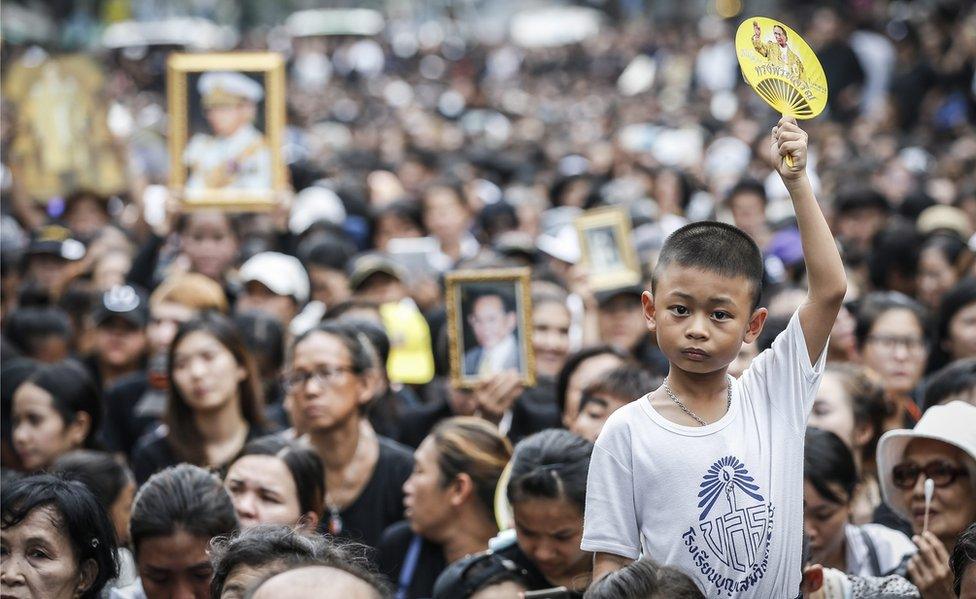
Thousands of Thais gather to mourn on the streets of Bangkok as the king's body is moved from Siriraj Hospital to the Grand Palace
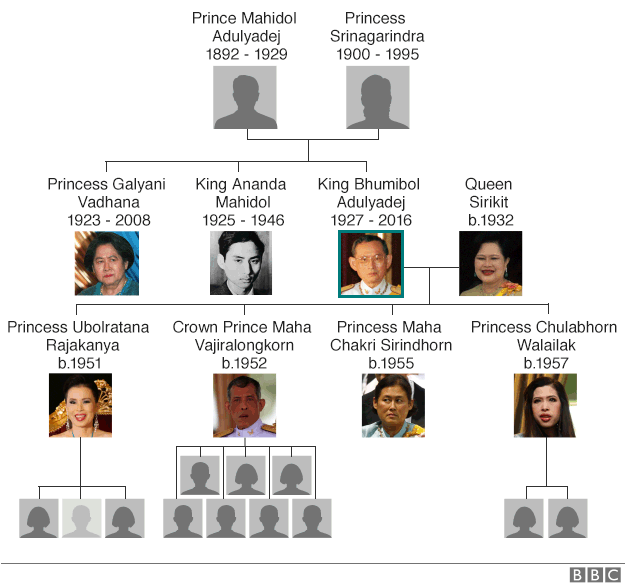
The royal family tree
- Published14 October 2016
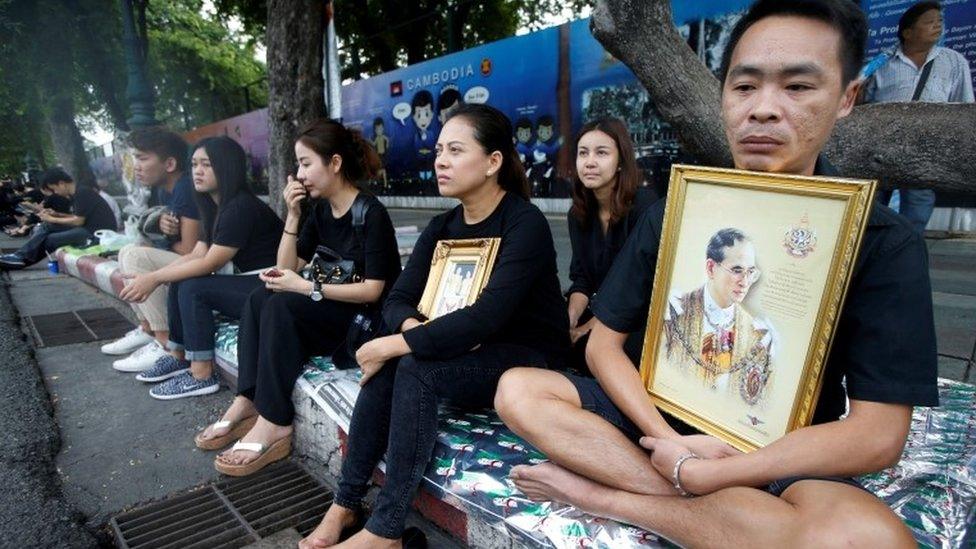
- Published14 October 2016
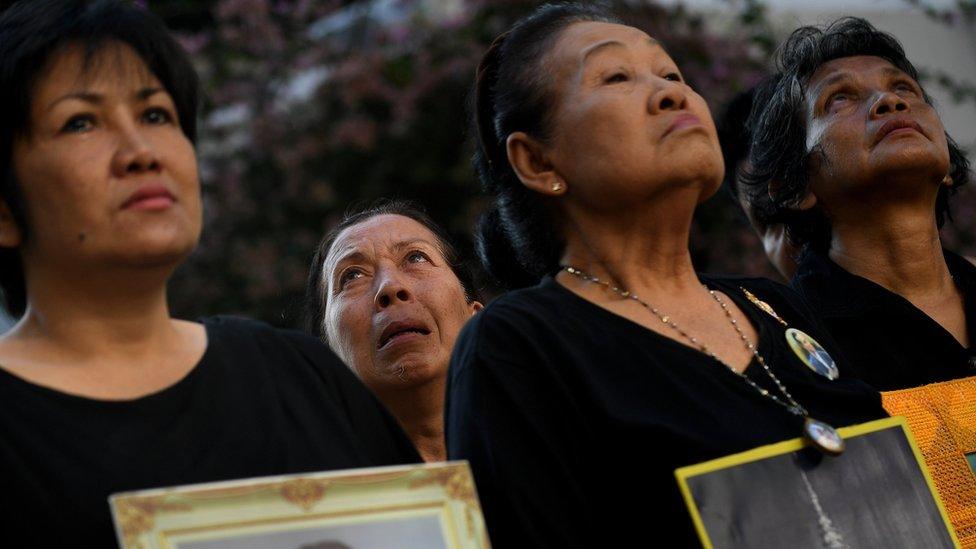
- Published14 October 2016
